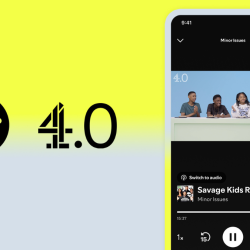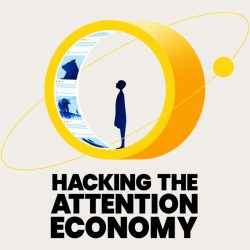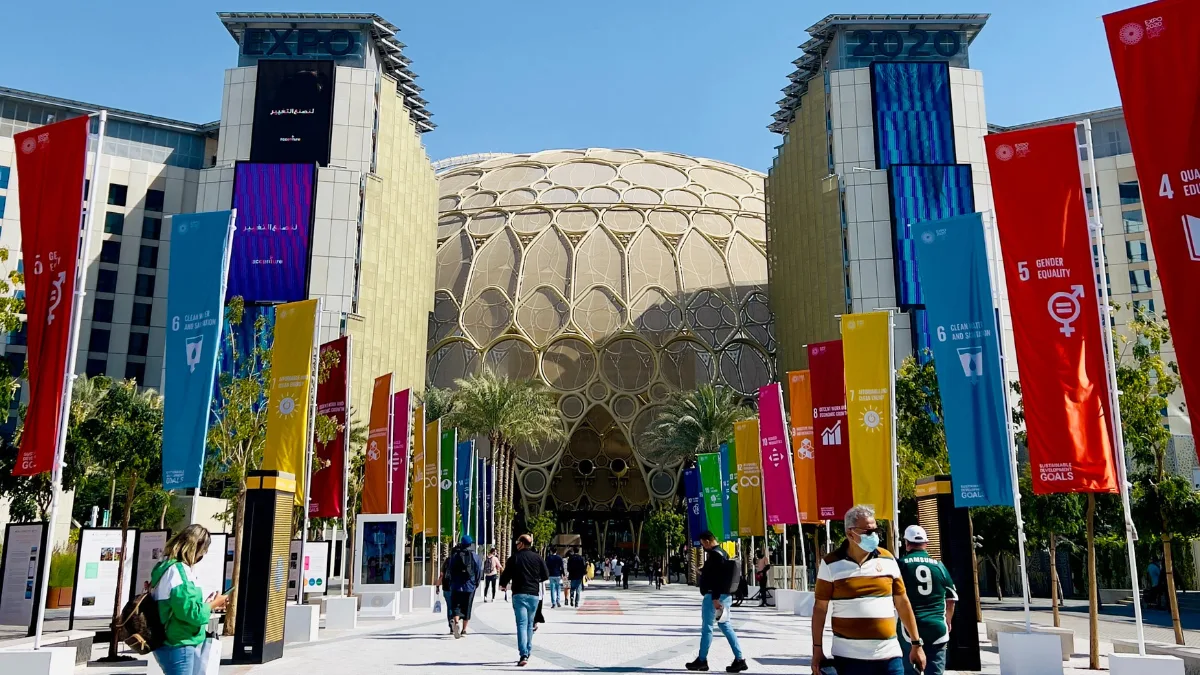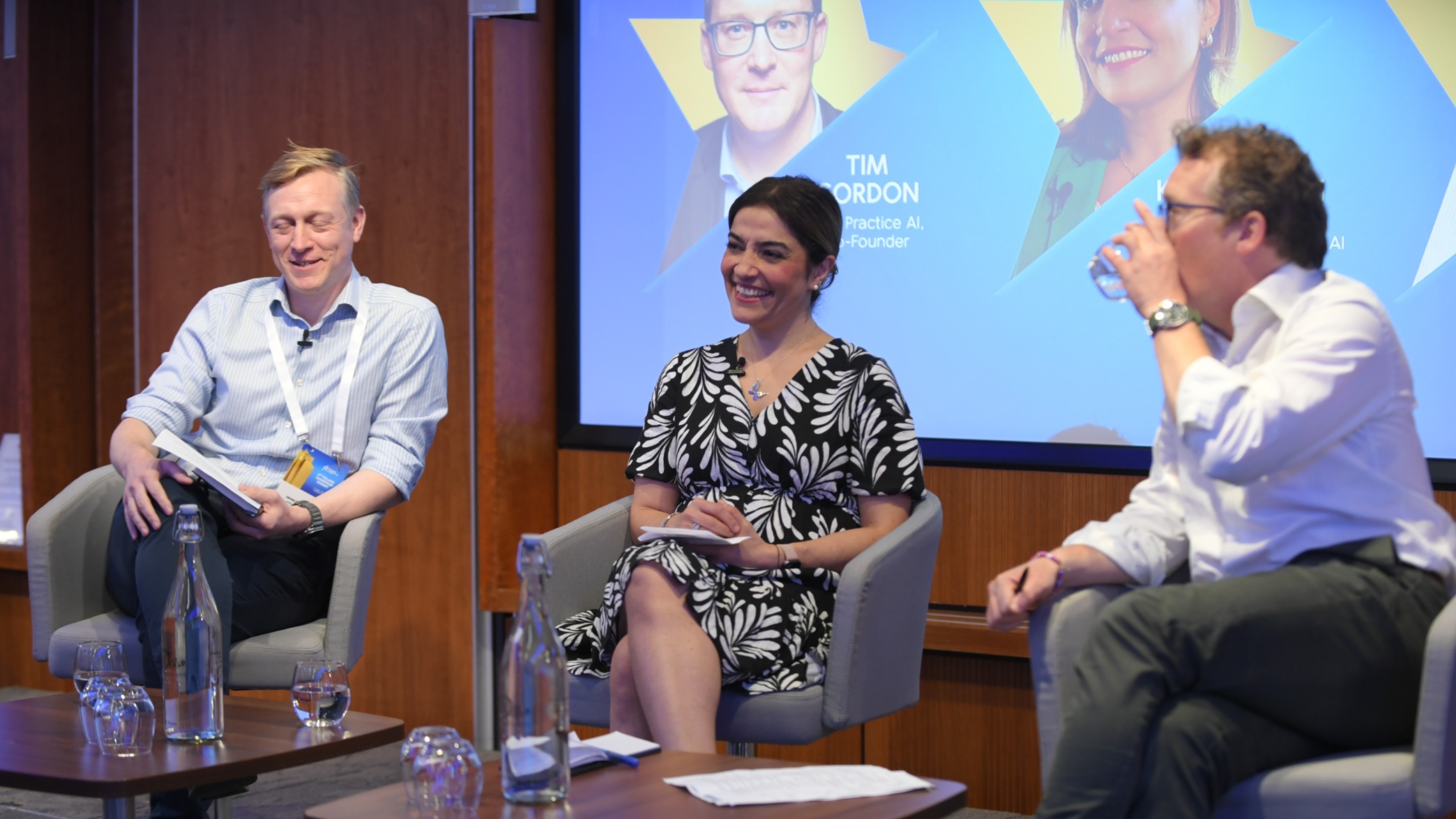A couple of weeks ago saw the start of the 28th Conference of the Parties to the United Nations Framework Convention on Climate Change (COP28). Curiously, this time it was held in Dubai, a place steeped in a history of oil production that once accounted for half of its GDP. Yet there’s a certain irony to this choice of location that reflects the broader complexities we all face: the tug-of-war between immediate goals and long-term impacts. I can imagine that some who chose to attend this year also found themselves at a crossroads: be physically present and part of the conversation or opt for a kind of silent activism, where abstinence speaks louder than words. This pressing question isn’t just echoing through the venues of COP28 in Dubai, but is also a hot topic in boardrooms worldwide: What does it take to find the courage to step off the relentless hamster wheel, to show true integrity and a commitment to meaningful change versus more of the same? It’s something that I personally wrestle with almost on a daily basis.
I’ve been following some of the summaries and news alerts that have been emerging from the summit whilst thinking about what to write for this article. I noticed a similarity in the ongoing debate over ownership versus stewardship.
In the case of COP28, it’s about water; for the media industry, it’s about the conversations around data, AI, and content creation that are resulting in the idea of ‘privacy as a premium.’
The concept of privacy is complex, subjective and varies significantly from person to person, often influenced by individual experiences, cultural backgrounds, and expectations. This becomes all the more complicated when we enter the digital and online realms where the perception and terms and conditions around privacy are dependent on which platform you use and which nation-state governs the use of your data and how.
We currently find ourselves in the midst of a complex entanglement of climate, economic, cultural, technological, environmental, and political tipping points
It’s in this intricate tapestry that I see a valuable lesson emerging from COP28. There’s a shift in perspective trickling out of the venues in Dubai: viewing resources like water, or in a broader sense, data, not as commodities to own but as shared assets that require stewardship. This shift in thinking, I believe, could offer profound insights for those in the media industry. By adopting this ‘see the world differently’ approach, it might just lead to a series of different, more impactful decisions, ones that could significantly alter the long-term consequences of our actions today.
At the most fundamental level, water is the cornerstone of life on Earth, a bond we share with all living creatures. This perspective underscores our inseparable responsibility to protect and preserve water, ensuring it remains pure and flowing. Failing to do so affects us all, reminding us of the collective cost of neglecting this vital resource. Returning to my analogy; if water symbolises key aspects of the digital age, data privacy and content creation, then technologies such as smart irrigation systems may provide practical examples of how to facilitate this transition; the shift of focus from ownership of water to its stewardship, emphasising efficient and sustainable use of this vital resource. By leveraging data, these systems make informed decisions about irrigation, ensuring responsible use of water for the greater good of both the environment and community.
This model presents a striking parallel for the media industry concerning data privacy and content creation
Moving from ownership to stewardship in this context implies utilising audience data not just for maximising profits or viewership but for delivering content in a responsible and ethical manner. This approach would prioritise the audience’s needs and privacy, along with the broader societal impact of the content.
Similarly, smart irrigation systems utilise data to benefit the ecosystem without depleting resources. In the same vein, media companies can use data to create content that is both relevant and engaging while maintaining respect for individual privacy and rights. This stewardship model encourages a balance in the media industry, harmonising the use of data for content personalisation and audience engagement with ethical considerations and privacy concerns, fostering a sustainable and trust-based relationship with audiences.
Recently, at a tech conference in Nuremberg, Germany, I had the opportunity to address around 150 developers and coders. Many in the audience shared a deep concern for the planet’s future, so much so that they were reevaluating major life decisions, including starting families. As creators of technology, they stand at a unique crossroads, wielding the power, and bearing the responsibility, to embed some more equitable core values into the very heart of the technologies that we are increasingly and worryingly seeing ‘white-labelled‘. However, there’s a potential shift in perspective that could be transformative. If those developers chose to step away from their relentless ‘hamster wheels’ of rapid scaling and profit generation, and instead embraced a philosophy of regeneration, moving beyond mere sustainability and ownership, and adopting a mindset of stewardship. This could create the culture and environment for profound systemic changes to happen.
I believe that the media industry stands at a similarly monumental crossroads, a paradigm shift, one that combines the value of regeneration (via the ethical stewardship of data and content), and technology for the greater good. By embracing regenerative practices and aligning success metrics with those used in, for example, smart water systems, the media industry could be in a position to ask, and demonstrate more transparency whilst prioritising long-term environmental and societal health over short-term gains.
For example:
- Efficient data usage: Mirroring smart irrigation’s water efficiency, media companies can justly use data, ensuring content reaches the appropriate audience without inundating them with irrelevant information
- Improved content quality: Similar to how optimal watering boosts crop yield, intelligent data usage can significantly enhance content relevance and quality
- Conservation of user trust: Just as smart systems conserve resources, responsible data handling maintains and nurtures the vital resource of user trust
- Cost-effective operations: Embracing data stewardship not only supports ethical practices but also leads to more cost-effective operations, minimising expenses related to data management
- Positive societal impact: Ethical data use by media companies can reduce negative societal impacts, similar to smart irrigation minimise environmental footprint
- Ethical decision making: A commitment to a data-driven approach that respects user privacy and prioritises ethical content creation and distribution
In this era of profound macro tipping points, climate, economic, cultural, technological, environmental, and political, the media industry’s role and responsibilities are magnified.
To become ‘good ancestors,’ leaving a positive legacy for future generations, media professionals must deeply consider:
- Environmental impact: Evaluating the environmental influence of their content and advocating for sustainable practices and climate change awareness
- Economic inclusivity: Crafting narratives that are inclusive and reflective of all societal sections, especially the marginalised
- Cultural respect: Ensuring content respects and authentically represents diverse voices and perspectives
- Ethical use of technology: Balancing the benefits of AI and data analytics with the imperative to protect user privacy
- Environmental stewardship: Aligning practices and content with sustainable environmental goals
As the media industry navigates these challenging yet opportunity-rich times, it holds the power to shape public opinion and drive change. By adopting a stewardship mindset and focusing on ethical practices, media professionals can forge a path that not only informs and entertains but also inspires positive, regenerative change in society.
Finally, in the words of African-American science fiction writer, Octavia E Butler, ‘All that you touch, you Change. All that you Change, Changes you. The only lasting truth is Change.‘
Featured image: Expo Dubai / Daniel Ponomarev / Pexels

















